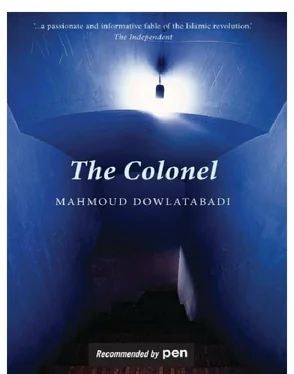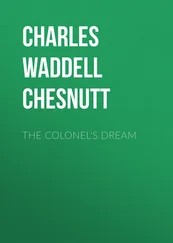When the central government was fully stretched dealing with the Jangali rebellion in the north, Pesyan threatened to attack the undefended Tehran with 4,000 men, accusing Qavam of being a servant of foreign interests. Tehran would have welcomed him. He made overtures to Kuchik Khan ( see above ) and to the Bolsheviks of Central Asia for assistance, but the Soviet government of Moscow offered to assist Tehran against him. Qavam offered Pesyan amnesty, safe passage out of the country and even monetary compensation, but The Colonel refused to compromise. He accused Qavam of double dealing with the tribes against him and broke of all relations with the British, who were trying to act as intermediaries between him and Qavam, through their consul at Mashhad. Pesyan arrested all those who had worked with or for the British.
Qavam, with Reza Khan (later Reza Shah) as minister of war, induced the local tribes to raise a force against him, which defeated him and his gendarmes at Quchan. The Colonel escaped, but was caught and killed in a subsequent skirmish. His head was sent to Tehran. Pesyan was buried in a shrine erected in memory of the great Nader Shah, the conqueror of India. Ever since, he has been a hero to Iranian nationalists, who have always resented the continuing interference of the Great Powers in the affairs of Iran. Although nationalistic, the Islamic regime has never taken this secular man to its heart. 68
Oshnu cigarettes : a cheap brand of Iranian cigarette, mostly smoked by working people. Also Homa cigarettes.
Point Four Programme : development aid programme introduced by US President Harry Truman in 1949 as the fourth mainspring of American foreign policy. It was designed to provide aid — initially mainly economic and technical, but later military — to countries in Latin America, Africa and Asia as a way of countering the influence of Soviet Russia and China.
Qaim Maqam : (1779–1835), renowned statesman, essayist, and poet of the early Qajar period. Mirza Taqi Khan Amir Kabir essentially adopted his outlook on politics and diplomacy. He was the architect of a ‘no war no peace’ policy with Russia which drew on religious and national sentiments to rally support behind the crown prince and his military modernisation programme, to create a credible defence against Russia. His policies facilitated funding for military reforms and guaranteed British support against Russia.
Qavam, Ahmad : see under Mohammed Taqi Khan. In addition, he incurred the wrath of the communists for getting the better of the Russians. When the Soviets failed to honour their undertaking to withdraw from their wartime occupation of Iran in 1946, Qavam offered them the ‘northern oil’ deal, by which the Russians would receive a concession for oil exploration in the north in return for evacuating their troops. After the troops moved out, the Majlis (parliament) refused to ratify the arrangement and the Russians got nothing. Qavam, outwardly subservient to foreign interests — and criticised for such — was in fact a patriot, who earned the nickname of The Wily Fox.
Rezaiyeh : (modern name: Urumiah) capital of the Iranian province of West Azerbaijan. Under the founder of the Pahlavi dynasty Reza Shah, Urumiah was renamed Rezaiyeh. The original name was restored with the advent of the Islamic Republic.
Rouzbeh, Khosrow : founder-member of the Tudeh, the Iranian party established in 1941 as the successor to the banned Communist Party of Iran. An army officer and instructor at the country’s military academy, Rouzbeh was a leading member of a secret communist fifth column within the Iranian military. He was arrested, and escaped, on numerous occasions. After the coup against Mossadeq, he was condemned to death and executed in 1958.
Rostam : principal character in the heroic epic poem, the Shahnameh, the great warrior who fights the enemies of Iran. His tragedy was that he unwittingly killed his son Sohrab in single combat, recognising him only as he lay dying.
Sattar Khan : (1868–1914) revolutionary leader from Tabriz who played a key role in Constitutional Revolution (1906 — 11). Under his guidance, a ‘High Military Council’ was proclaimed in 1908. However, after revolutionary forces took Tehran, he and his followers refused to lay down their arms. In an ensuing armed clash with former comrades, Sattar was fatally wounded and died a few days later.
SAVAK : Iranian secret service. Founded in 1957, its charter committed it to ‘defending the state and preventing all conspiracies against the public interest.’ The organisation was established with the help of US and Israeli security experts, and was used by the Shah’s regime to stifle all forms of opposition. It was a huge organisation, with informers everywhere, creating an atmosphere of suspicion and distrust between families and friends. Dissidents were rounded up, tortured and, in some cases, executed. In the last few years of the Shah’s reign, when Carter was president of the USA, they became noticeably more tolerant of opposition.
Setar : traditional three-stringed instrument, similar to a small lute.
Sha’ban the Brainless : ringleader of the mob paid by the CIA to stage anti-government demonstrations during the coup against Mossadeq. He earned his popular nickname Bimokh (the Brainless) for his witless thuggery. After the successful coup and the restoration of the Shah, Sha’ban was handsomely rewarded for his services.
Shaghad : The half-brother of Rostam, the great hero of the Shahnameh epic. Shaghad and the king of Kabulisatan dig a pit full of swords and entice Rostam to ride into it, with his famous horse Rakhsh. Both are impaled on the swords. The dying Rostam persuades Shaghad to give him a bow and arrow. With his last breath, he shoots an arrow at Shaghad, who is hiding behind a tree. So strong was Rostam that the arrow pierced the tree and killed Shaghad behind, pinning him to the tree.
Shahnameh : see Ferdowsi
Shams ul-Emareh : palace added to the Golestan Palace compound, it was ordered by Nasir al-Din Shah, who had been impressed by the tall buildings he had seen in Europe, and finished in 1867. The first five-storey building of old Tehran, it was lavishly decorated with tiles and mirror work. It served both as royal harem and, later, as a place for official receptions.
Taqi Khan : see Amir Kabir
Teachers : The teachers Khezr Javid describes his early days as a teacher, before he joined SAVAK, were part of the Sepah-e Danesh , the Army of Learning, which was established by the Shah in the 1960s. As an alternative to military service, young men and women with an education were sent out to remote villages to teach basic literacy and hygiene. Some of these teachers were very energetic and idealistic and fitted in well with village life, becoming useful links between the village and outside officialdom, while others were unable to adapt to the primitive conditions in the villages of those days, and became desperately homesick and lonely.
Toman : monetary unit in Iran; 1 toman = 10 rials.
Yooshij, Nima : (1896–1960) Iranian poet, often considered the father of modern Persian poetry. His works, which eschew traditional verse forms, employ natural everyday speech and dialect to portray the life of ordinary Iranians. Mahmoud Dowlatabadi bears an astonishing physical resemblance to him.
Читать дальше












